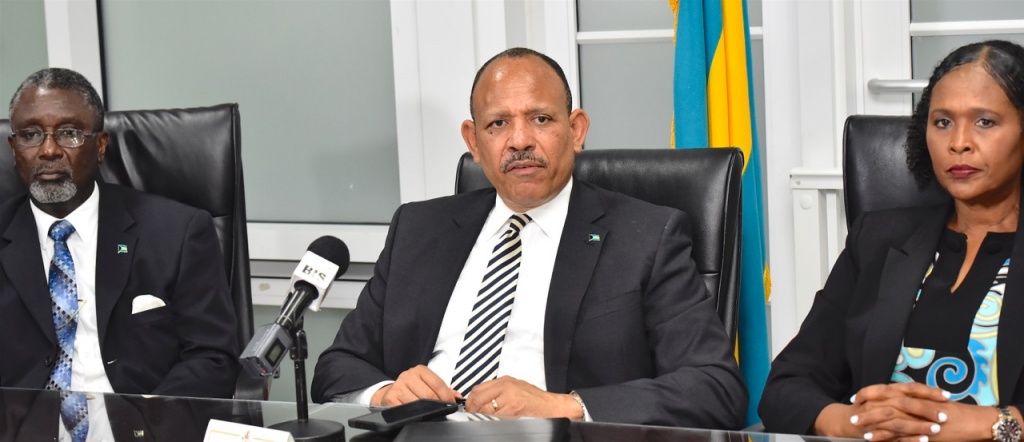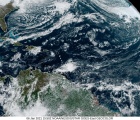
NASSAU, The Bahamas — Minister of Health, the Hon. Dr. Duane Sands said that the country was advised on Sunday, March 15, 2020 that The Bahamas had a confirmed case of COVID-19/Coronavirus. Now there are two additional cases bringing the total number of confirmed cases to three.
“The Prime Minister of the Commonwealth of The Bahamas has outlined the national response, and I wish to repeat his charge to all Bahamians that social distancing, proper hygiene, hand washing, and specific recommendations to avoid group gatherings will make a difference to decrease the spread of the virus,” Dr. Sands stated during a press conference at the Ministry of Health, Wednesday, March 18, 2020.
He assured that the Ministry of Health has activated its Plan to mitigate the spread of COVID-19, but community participation will be critical if the country is to change the epidemiologic pattern of cases in The Bahamas.
“We can expect an increase in the number of cases within the coming days, and we are preparing for the eventuality as and when it occurs.”
Dr. Sands added, “However, it does not need to happen in the manner that our neighbours in other countries have experienced. Together, Ministries, Agencies, Departments, businesses communities, corporations and the general public can achieve a flat line or tapering off of coronavirus.”
He explained that the Ministry of Health is following internationally agreed management protocols for testing. At this time, the Ministry will test persons who are:
· COVID-19 suspected cases, or
· Close contact
The Health Minister again reiterated ways that the public can protect themselves from the virus. These include:
He said all Bahamians should follow proven public health advice by closely adhering to the following recommendations:
1. Maintain a distance of at least 3 – 6 feet between you and others. This is social distancing; and in practical terms means you should avoid recreational and leisure activities, large crowds, playdates, in-person meetings and public transportation;
2. Disinfect surfaces regularly. Examples of these include work surfaces, phones, light switches, door knobs, play toys, tables and floors;
3. Wash hands with soap and water. If you do not have access to washing facilities, use hand sanitizers with at least 65% alcohol;
4. Avoid unnecessary travel;
5. Stay home if you are sick;
6. Stay home if you are at higher risk of being infected with COVID-19. These people include the elderly and those who have diabetes, hypertension, lung conditions (example asthma), heart disease and kidney disease. This also refers to those who already have a weakened immune system such as cancer patients, those on high-dose steroids, pregnant women and those morbidly obese.
By Llonella Gilbert
Bahamas Information Services





